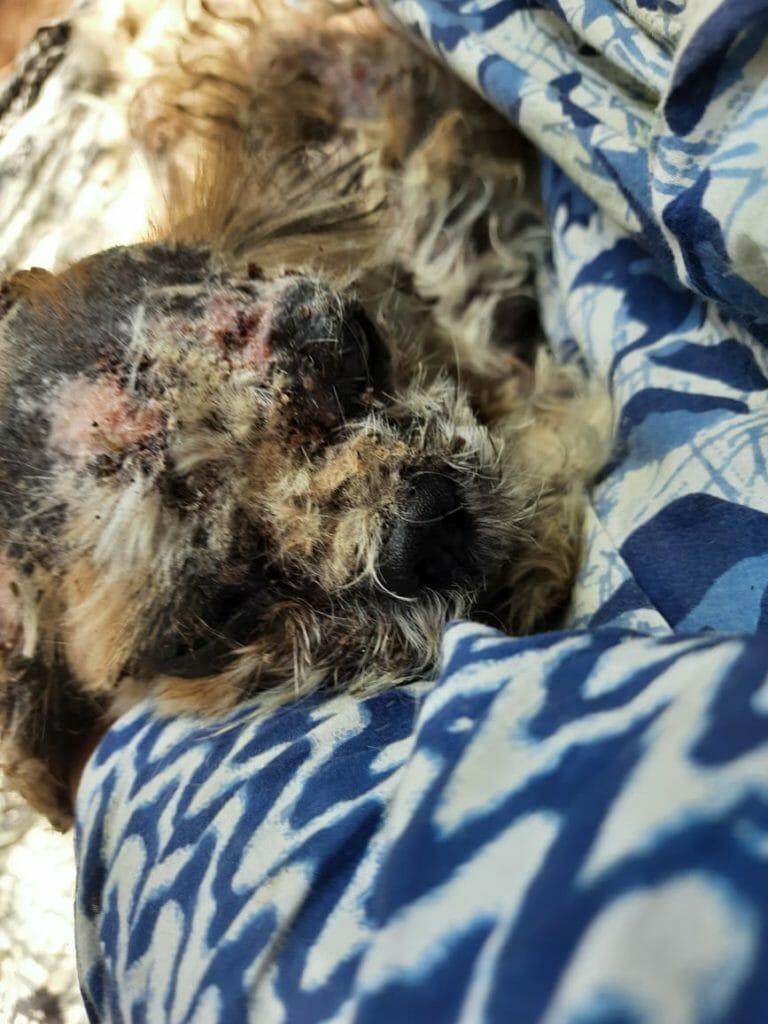The Kannada movie, 777 Charlie, not only beautifully showcased the relationship between dog and man, but also highlighted the perils of indiscriminate breeding. The film also stressed the essential narrative of ‘adopt, don’t shop’. The reality is that dogs are bred indiscriminately, pups and dogs do get abandoned, and there are still many dogs looking for homes.

Dog Breeding and Marketing (DBM) rules, 2017, and Pet Shop rules, 2018, lay out the broad structure, regulations and controls to ensure responsible breeding and to avoid cruelty.
While the framework exists, does it really work?
Nevina Kamath, Founder of Action for Animal Justice, says, “Right now, it is mainly animal lovers who report backyard breeders because they witness animals being kept in appalling conditions. Confiscation happens on grounds of cruelty, including poor care, insufficient space, fresh air and exercise, lack of fresh food and water, poor medicare, lengthy periods of confinement or restraining, and unsanitary conditions.”
Poor implementation of laws
When animal activists, like Nevina, see dog breeders with a large collection of animals, they ask for their Breeders’ License, the dogs’ vaccination records, and details of purchase/ adoption. In case of any issues, they file a complaint with the police who can then book a case against the offenders as per PCA Act 1960.
Breeding Rules are generally not invoked because many say they do not breed the animals for the purpose of selling, claiming, instead that these are their pets. Nevina says, “We unfortunately don’t have any clear data on the number of breeders in the city. The licensed ones are far and few, unfortunately.”
It is evident, therefore, that the biggest challenge around exercising checks and balances on breeders has been poor intent in execution of DBM, 2017, and Pet shop rules, 2018.
Is anything being done to fix the problem of poor implementation ?
Compassion Unlimited Plus Action (CUPA) had filed a public interest litigation (PIL) for better implementation of Dog Breeding and Marketing Rules and Pet Shop Rules.
“The Karnataka High Court has directed the state government to implement the provisions of the breeding rules, which was notified and gazetted by the central government. The licensing authority is the Karnataka State Animal Welfare Board. They are presently conducting inspections, zonal wise, to get breeders licensed. In case of cruelty and abuse, the option is open to the local police to register an FIR and seize,” says Allwyn Sebastian, Lawyer, Compassion Unlimited Plus Action (CUPA).
While some have taken the legal route, some active citizens volunteer their time and effort to work closely with the state government to ensure it initiates implementation of breeding rules.
A good start: A fully functional Karnataka Animal Welfare Board and District SPCA (Society of Prevention of Cruelty to Animals)
Priya Chetty Rajagopal, Founder CJ Memorial Trust, who has been helping the initiative to regulate indiscriminate breeding in Bengaluru / state says “The Karnataka Animal Welfare board and District SPCAs have finally been set up. This is a good start for the government to regulate and control cruelty meted out to the poor animals in the name of indiscriminate / backyard breeding. Along with animal welfarists from several states, we are working closely with the Animal Husbandry and Veterinary Sciences department, Government of Karnataka, to firstly train and sensitise the entire department about the Dog Breeding and Marketing Rules, 2017, and Pet Shop Rules 2018, as well as leverage national best practices. A few detailed sessions with the team of over 100 veterinarians have already taken place. A few more sessions are in progress.”
Priya adds: “The department should soon have the information, framework, and implementation plan to address this, but patience and steady commitment are needed to make it succeed. Following PCAA parameters, as defined by the Animal Welfare Board of India, is critical now that the base of the KAWB/SPCAs are in place in Karnataka. This may well be a long drawn process, but we are on to a good start.”
The case of “ethical breeders”
In the meantime, there are a group of people who call themselves “ethical” breeders. The focus of such breeders is to promote and better the breed while also focussing on the commercial side of things .
They potentially stay away from In-breeding as it can give rise to a lot of genetic and hereditary problems. They follow line-breeding or outcross breeding.
Read more: How to deal with street dogs in Bengaluru
They tend to not breed monorchid dogs and female dogs that are not conformationally correct, are ageing, are not physically strong, and are temperamentally unsound.
However, who is monitoring these ethical breeders ?
Unless there is an overarching system that controls and monitors breeders there is no determining who is an ethical breeder versus a puppy mill owner versus a home breeder.
Pet Licensing: The way forward?
“Regulation of Pet Ownership is key. People allowing their pets to reproduce, owning a large number of breed dogs that are not rescues, and not taking precautions to sterilise them, must be declared breeders by default under Pet Licensing Rules. Without this there is no way we can effectively enforce the Statutes,” Nevina adds.

Read more: Witnessed the killing of a stray dog? Here’s how you can file a complaint
Bruhat Bengaluru Mahanagara Palike (BBMP), with an approval from UDD (Urban Development Department), has been attempting to make the registration of pets mandatory for pet owners in Bengaluru and within their jurisdiction. Pet licensing comes as an easy and sustainable solution to help back yard- illegal breeding and abandonment of dogs. This effort would make pet owners more responsible and accountable. Pet Licensing also helps the civic body with pet census and helps track pet rabies cases. This effort also makes microchipping of pets mandatory, which will help track lost pets. The licensing fee is Rs 100 as charged by BBMP.
Dr Manjunath Shinde, BBMP Animal Husbandry told The Indian Express on 14th October, 2021 that presently pet licensing is optional and now they are making it mandatory keeping the welfare of dogs in mind. “The detailed guidelines will be out soon. Hardly 20% of the pet owners in Bengaluru have licenses. This move will bring more transparency. We have seen several cases where the owners just abandon their pets by the roadside when they develop diseases or other health problems. The pets have to be vaccinated and neutered and microchips should be installed before the licensing. With the microchip installation, BBMP will keep a check on the number of pets the city has and track the owners who have abandoned them. The owners have to be responsible towards their pets.”
Hopefully, the Government of Karnataka will soon commit their time and resources to regulate breeding, and promote the ‘adopt, don’t shop’ narrative. The onus is on the government. This, coupled with complementary efforts of well meaning citizenry, can create a nurturing environment for the dogs of Bengaluru and Karnataka.
(This article is a follow-up to the story: Lessons from Charlie, the Indie dog that inspired a movie)
Very good and informative article. As the article says both govt and citizens should take equal well.and and responsibility to see the abandoned dos are taken care of and the pet owners to get licence for their pets. Kudos to Harini